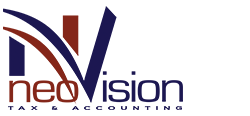When you start a business for the first time, you may wonder which classification you should use for your new business. The choices are usually a Sole Proprietorship, a Limited Liability Company (LLC), or an S-Corporation.
For instance, if you want your company to be a corporation with shareholders, you would choose an S-Corporation because it offers the most tax savings for the shareholders. You could also start an S-Corporation as an individual to benefit from limited liability and pass-through status protections.
Some entrepreneurs see benefits in having shareholders because they can help develop and grow their businesses more quickly. But there are some disadvantages to S-Corporations as well.
Let’s explore what an S-Corporation is in greater detail.
An Overview of S-Corporations
An S-corporation is a domestic corporation that can have up to 100 shareholders and one class of stock. The allowable shareholders are estates, individuals, and specific types of trusts. But you cannot start an S-Corporation if your business is an international corporation, insurance company, or certain types of financial institutions.
If you are still interested in creating an S-Corporation, you can use Form 2553 to register your company as an S-Corporation.
The Advantages of an S-Corporation Classification
Classifying your business as an S-Corporation has numerous benefits, including pass-through status. This tax advantage allows you only to pay taxes on the income you receive from your company personally. The company itself is not required to pay taxes on the income it earns because it passes through to the owner. That way, you don’t have to pay double the tax on the same income.
Another advantage is that your shareholders have limited liability, which means they cannot be held personally liable for the activities of the business. In other words, no one can come after the personal assets of the shareholders because they are separate from the S-Corporation’s assets.
Lastly, the owners of S-Corporations get to enjoy reduced Social Security and Medicare expenses because they can claim themselves as employees. Since a portion of S-Corporation income is classified as employee distribution, you don’t have to pay self-employment tax on the distribution amount. You only have to pay self-employment taxes on the salary portion.
Therefore, you can save a lot more money on self-employment taxes than you would if you were a Sole Proprietor or owner of a Single-Member LLC.
What is a Reasonable Salary?
You can pay yourself a salary from the profits of your S-Corporation, but it has to be a reasonable salary. This means the owner and shareholder salaries must closely match the same salaries your employees earn for doing similar work in your industry.
The factors for calculating a reasonable salary are as follows:
- The dividend distribution history
- All the compensation agreements that have been made
- The duties and responsibilities of the owner, employees, and shareholders
- The amount of time spent managing the activities of the business
- The payment amounts made to non-shareholder employees
- The level of training and experience of the owner, employees, and shareholders
- Comparable salary amounts amongst other businesses in your industry
An accountant or attorney can help you calculate reasonable salary amounts for you and your shareholders.
The Disadvantages of an S-Corporation Classification
S-Corporations have some disadvantages worth mentioning. They include:
- The owners must file state and federal income tax returns
- The owners must file Corporate Minutes and Articles of Incorporation
- Regular shareholder meetings must get conducted
- Expensive government fees are charged to form an S-Corporation
- Shareholder restrictions apply
- Shareholders must pay income taxes on S-Corporation income, regardless of how much revenue it earned them
- S-Corporation owners and officers must pay themselves a salary, regardless of whether the business has profited or not.
Other Considerations
The most popular benefit of S-Corporations is the ability to prevent double taxation on earned income because S-Corporations have pass-through tax entity status. Because of this, the shareholders only have to pay personal income taxes on the company income. The corporation itself doesn’t pay any income taxes.
Shareholders are entitled to dividend payments from their profits once all expenses are paid. Dividends are not subjected to self-employment taxes.
The earnings of S-Corporation shareholders are subject to the conditions of the Federal Unemployment Tax Act (FUTA) and the Federal Insurance Contributions Act (FICA) because shareholders are still considered employees of the company. Therefore, a portion of their income goes toward paying federal income taxes since they must report their earnings on their personal income tax returns.
However, you could declare yourself an independent contractor of the S-Corporation rather than an employee. The downside is that you must pay a 15.3% self-employment tax rate, so that might not be a beneficial thing for you to do.
Forming an S-Corporation
When you form an S-Corporation with your Secretary of State, you must complete your Articles of Incorporation and file it with the Secretary of State’s office of your state. You’ll be required to provide a legal name for your business, which must be a name that no other company uses in the state.
If you have shareholders, you must issue stock certificates to signify their company ownership percentages. Also, don’t forget to apply for all the necessary business licenses and certificates to operate your corporation legally.
Next, you’ll need to file Form SS-4 with the Internal Revenue Service to receive an Employer Identification Number. You may also need to apply for additional ID numbers with your state and local government agencies.
Once your S-Corporation is created, you have up to 75 days to file and submit Form 2553. This form is the Election by a Small Business Corporation form.
Request Professional Assistance
Many new business owners and shareholders have numerous questions about the advantages and disadvantages of S-Corporations. If you wonder whether an S-Corporation classification is best suited for your particular financial and business needs, then you should contact an accounting professional for further clarification.

